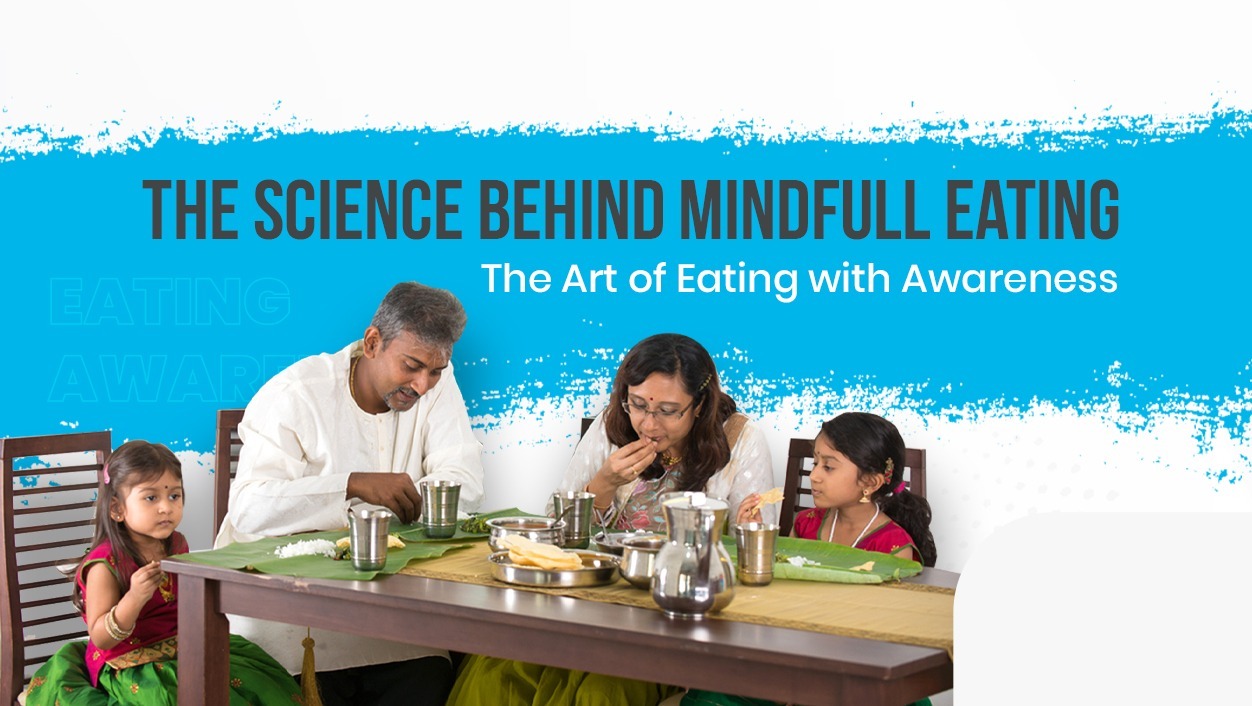Why Do We Eat?
It seems like a simple question, doesn’t it? To survive. To gain energy. Because we enjoy it. The answers are simple as well. But have we ever truly experienced our food?
Have we felt the warmth of rice between our fingers?
Noticed the burst of flavor from a fruit as if tasting it for the first time?
We rush through meals, lost in thought, barely aware of what we consume. Our hands move automatically—picking up food, bringing it to our mouths—while our eyes stay glued to screens, our minds tangled in distractions. Eating has become something we do while doing something else.
But what if—just for today—we slowed down?
What if we tasted each bite as if it were the only food we’d ever have?
What if we felt the texture, savored the flavors, and listened to what our body truly needs?
Food is not just fuel. It’s an experience. Let’s start treating it that way.
Let’s Talk About Mindful Eating…
Oh, but wait—this isn’t the kind of mindfulness you always hear about from social media, yoga gurus, and wellness influencers. Of course, it’s related, but this goes deeper.
What is Mindful Eating ?
Mindful eating isn’t just a modern concept—it’s been embraced in many ancient cultures and religions as a way to connect deeply with food. From Buddhist practices to Ayurvedic traditions, the act of eating with awareness has been seen as a sacred ritual that nourishes both body and soul.
This practice isn’t about following rules or restrictions; it’s about tuning into the present moment with your food. It’s about feeling the textures, savoring the flavors, and honoring the nourishment that food provides. When you eat mindfully, you’re in touch with your body’s natural hunger and fullness cues, free from distractions.
By embracing mindful eating, you not only nourish your body but also your spirit. It becomes a quiet yet powerful way to appreciate the simple act of eating, bringing balance and satisfaction into your life
How to Approach Mindful Eating?
- Approach Food with Curiosity: Don’t label food as “good” or “bad.” Instead, observe what you’re about to eat. What does it look like? How does it feel in your mouth? Is it nourishing for your body? Approach your meals with an open mind, exploring their sensory experience.
- Listen to Your Body’s Cues: Check in with how your body feels before, during, and after eating. Are you truly hungry, or just eating out of habit or boredom? Mindful eating means tuning into your natural signals for hunger and satisfaction.
- Honor Your Hunger and Fullness: Learn to trust your body’s natural rhythms. You don’t need to eat until you’re stuffed or ignore your hunger. Eat when you feel hungry and stop when you’re comfortably full.
- Eat with Gratitude: Before you eat, take a moment to appreciate where your food comes from—whether it’s homegrown or sourced from afar. Be grateful for the nourishment it provides and the hands that helped bring it to your plate.
- Avoid Distractions: When you eat while distracted, like watching TV or scrolling through your phone, it’s easy to lose track of how much you’ve eaten. By eliminating distractions, you give yourself space to fully enjoy and be present with your meal.
- Practice Awareness in Every Bite: Pay attention to your pace. Are you chewing thoroughly, savoring the flavors? Slow down and savor each bite. Enjoy the experience of eating, bite by bite and focus on the present moment.
Dieting vs. Mindful Eating
Most traditional diets are focused on restrictions—what to eat, how much to eat, and when to eat—all with a purpose-driven goal: weight loss, managing cholesterol, or reducing the risk of diabetes. They create rigid boundaries, often leaving us with an overwhelming sense of limitation and guilt when we don’t meet the goals. You might think you’re eating “correctly,” but there’s always an underlying pressure to stick to a set plan, whether it’s calorie counting or time-bound eating windows.
In contrast, mindful eating isn’t about restrictions or aiming for specific results. It’s not about saying “I can’t have this” or “I need to eat less.” Instead, it’s about the process of eating—being present in the moment with your food. It’s less about the “why” and more about the “how.” Mindful eating is not driven by a need to lose weight or manage a condition; it’s about embracing the experience of eating without judgment or expectations, allowing your body to naturally gravitate towards what it needs.
Where traditional diets often leave us feeling deprived, mindful eating empowers us to make choices based on what we truly need—both physically and emotionally. It’s an approach that respects the journey of eating, focusing on nourishing your body in a way that feels sustainable and joyful, rather than restrictive or goal-oriented.
Mindful Eating in Today’s World
We all know now the access we have to an endless variety of food at our fingertips. Food delivery apps make it easier than ever to order anything at any time. The abundance of choices often leads to unhealthy eating habits. With marketing influencing our choices, we end up consuming more processed and unhealthy foods than we realize.
The way we eat has also changed. Midnight snacking, eating in between meals, and eating while distracted—whether watching web series or scrolling through social media—has become the norm. We often mindlessly consume food, not paying attention to what or how much we’re eating. This leads to overeating and an unhealthy relationship with food. Over time, this can contribute to various health issues like obesity, digestive problems, and chronic conditions.
The Advantages of Mindful Eating
- Weight Management: By tuning into your body’s hunger and fullness cues, you can eat more intuitively, helping to avoid overeating and maintain a healthier weight.
- Reduced Risk of Chronic Diseases: Mindful eating encourages healthier food choices, which can lower the risk of chronic conditions like heart disease, type 2 diabetes, and some cancers.
- Increased Body Awareness: Cultivating mindfulness helps you become more attuned to your physical sensations and hunger cues, improving body awareness.
- Reduced Stress & Anxiety: Mindful eating can be a calming practice, lowering stress levels and helping to manage anxiety.
- Improved Mood: Focusing on the sensory experience of eating can elevate your mood and create a more positive outlook.
- Reduced Emotional Eating: By recognizing emotional triggers, mindful eating helps break free from unhealthy habits and fosters a balanced relationship with food.
- Increased Appreciation for Food: Mindful eating encourages you to savor each bite, appreciating the flavors and textures, making meals more enjoyable.
Conclusion:
Mindful eating is a transformative approach to how we experience food. It’s not about restriction, rules, or rigid diets—it’s about being fully present with every bite. Unlike traditional diet plans, which are often focused on specific outcomes, mindful eating encourages a more sustainable and enjoyable approach to living well. When practiced regularly, it can also contribute to managing chronic conditions, reducing stress, and enhancing overall body satisfaction. By focusing on the process of eating, rather than just the outcome, we can cultivate a deeper appreciation for the nourishment our bodies need.
More exploration is needed to fully understand the long-term benefits, but the practice holds promising potential for those seeking to reconnect with their food and health.









